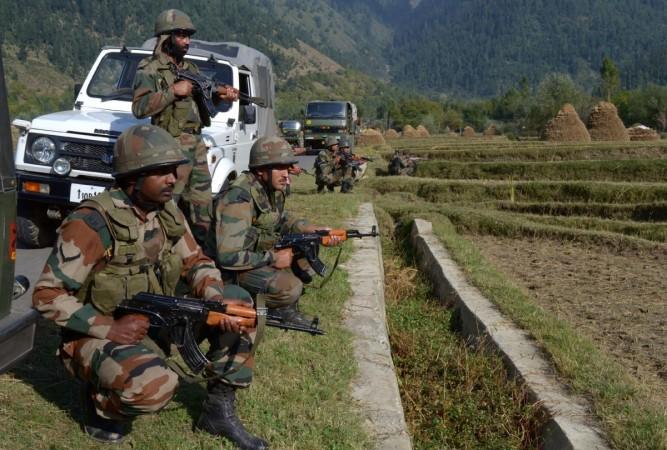
In one of the worst Indo-Pak border conflict escalations since the 2003 ceasefire, the last few days have witnessed unprecedented targeting of civilian areas and eight civilian deaths on the Indian side of the border.
Though Pakistani firing subsided on Thursday night following heavy retaliation by the Indian Army and a strongly-worded salvos by defence minister Arun Jaitley, national security experts believe this may not be the end to Pakistan's 'adventurism' along the border.
Pak Wants Kashmir Issue Alive
"The likely intent behind these cross-border firings from the Pakistani side is to keep the Kashmir issue alive internationally, and they may resort to such violations recurrently, maybe even within the next 15 days," Sameer Patil, associate national security fellow at Gateway House, a Mumbai-based think-tank, told International Business Times India Edition.
Pakistan has repeatedly played up the Kashmir issue on the international forum, and even this time, the border tension has received tremendous international attention.
Why International Border? Pak Targetting Hindu Population, Pushing Infiltrators
What has been unusual in the recent border skirmish is the Pakistani aggression along the undisputed International Border. The incessant firing along the international border also reportedly had the armed forced and the Border Security Forces perplexed.
"It is the Line of Control that is normally a live wire. The ceasefire is often flouted at the IB too but never to this extent. Villages and towns have not been targeted like this," a BSF official told Hindustan Times.
Some officials even wondered if the target of the Pakistani firing along the IB was the Hindu-dominated civilian area. "Unsettling civilians along the IB is far more impactful from the Pakistani point of view because locals here comprise a Hindu population," an official told HT.
The possibility of facilitating militants to infiltrate into India is also being seen as a major reason behind the latest attack.
"It was to push these terrorists inside Indian territory that the rangers from the Pakistan side tried to divert the attention and fired indiscriminately on the villagers," a BSF official told Firstpost.
Patil also believes that this incident along the international border is the first of many to push infiltrators into the Indian side.
"As winter is approaching, several routes for infiltrators may be blocked, and such firing on civilian areas is the best way that the Pakistan troops can give cover to militants," said Patil. "India has increased its vigil on the Line of Control (LoC) and hence, more infiltration-related skirmishes are expected in North Kashmir along the international border," he said.
However, Patil points out a strong disadvantage for Pakistan in targeting the international border.
"Pakistan cannot play victim and call for third-party mediation because the escalation in cross-border firing has taken place along the accepted international border and not along the LoC. This denies Pakistan and other outside powers the opportunity to put pressure on India to de-escalate," he said.
No War-like Situation
Even as fears of the conflict escalated, especially after the Indian government gave the armed forces 'a free hand', Patil said that the border tension is unlikely to escalate into a war-like situation.
"Pakistan does not want the situation to escalate as it knows it is not capable of engaging in a war with India. Even in the latest conflict, the Pakistani Army did not expect a robust Indian response to the firing, which has resulted in significant damages and casualties on the Pakistani side, which I believe is more than what has happened in India. Pakistan retracted as soon as Indian forces retaliated with heavy force," said Patil.
While India's strong stance seems to have pushed back Pakistan from the border, it needs a long-term plan. "This was only an ad hoc step. India has to rethink its Pakistan policy if it has to ensure border security," said Patil.

















